Trust Registration & NGO Registration in Karachi, Pakistan
Trust Registration & NGO Registration Service in Karachi, Lahore, and Islamabad by the Largest Legal Network of Pakistan
Trust Registration & NGO Registration in Karachi, Islamabad, Lahore & Rawalpindi, Pakistan. Requirements & Process of NGO/Trust Registration in Karachi, Islamabad, Lahore, and Rawalpindi, Pakistan are mentioned hereunder:
Laws For the Registration of Charitable Trusts
Requirements For Registration of a Charitable Trust
For the establishment of a charitable trust, three prerequisites must be fulfilled: the creator, trustee, and beneficiary. Failure may occur if the trust’s objectives are not clearly defined, causing uncertainty. Public charity trusts serve the greater good or a specific portion of society. While public law governs these trusts, they differ little from private trusts. Unlike private trusts, though, charitable trusts endure as long as their charitable purpose remains, irrespective of their specific aims.

Conditions for the Registration of a Trust
To establish public trust, the following criteria are essential:
- Trust property must exist, whether in cash or capital assets (land or buildings).
- Charity or social benefit must be the objective of the trust
Legal Certainties Required for Valid Charitable Trusts
Therefore, to be valid, a trust must satisfy these conditions or ‘certainties.’ However, this is not the case for public charitable trusts. In charitable trusts, as in private trusts, certainty as to the intention to declare a binding trust and the certainty as to the assets to be bound by the trust are strictly required.
Differences in Beneficiary Requirements Between Private and Charitable Trusts
While a private trust would fail for lack of clarity if the beneficiaries are not specified, a public charitable trust could be sustained even if the beneficiaries are not specified, provided the trust has a general intention of charity.
Creating and Revoking Trusts for Public and Private Charity in Pakistan
It is possible to create a trust for any lawful purpose, which may be revoked at any time. Private acts of public charity are covered by the Trust Act, which gives the creators of the trust great flexibility in how they operate. All areas of Pakistan are covered by the Trust Act and any group can benefit from it.
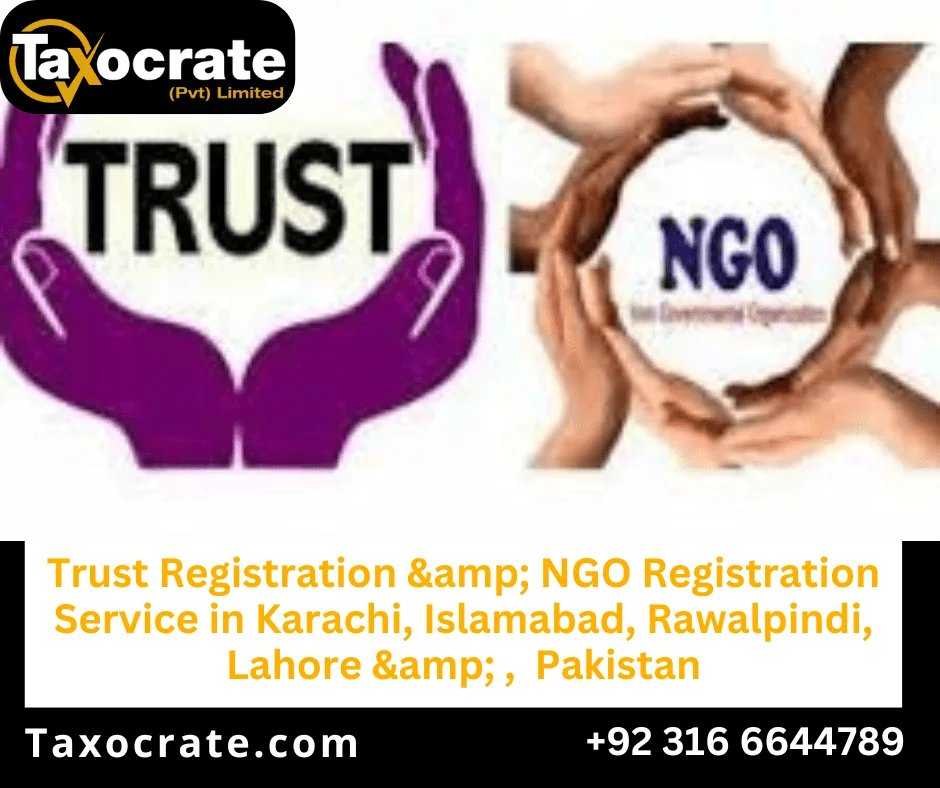
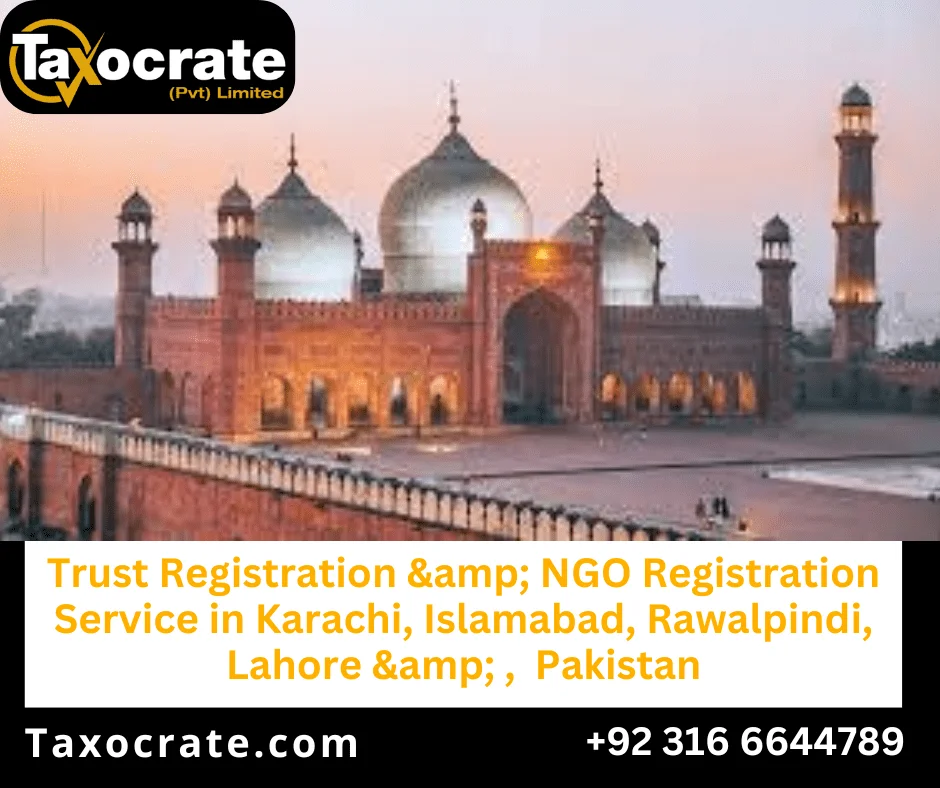
Advantages of Charitable Trusts
Charitable trusts play a vital role in addressing social and humanitarian issues in Pakistan. These trusts, established for philanthropic purposes, offer a range of advantages that contribute to the betterment of society.
Promoting Social Welfare in Pakistan
Under the umbrella of charitable trusts, various initiatives are undertaken to promote social welfare in Pakistan. These trusts engage in activities such as providing healthcare services, education, poverty alleviation, disaster relief, and women empowerment. A charitable trust’s focus on these critical areas can greatly improve the well-being of underprivileged communities and society as a whole.
Tax Benefits for the Charitable Trusts in Pakistan
One of the notable advantages of charitable trusts in Pakistan is the tax benefits they offer to donors and contributors. The government provides tax incentives to individuals and corporations who make donations to registered charitable trusts. These tax exemptions not only encourage philanthropy but also enable charitable trusts to receive substantial financial support, which further fuels their social impact initiatives.
Trustworthy and Transparent Mechanisms
Charitable trusts in Pakistan are required to adhere to strict regulatory frameworks, ensuring transparency and accountability in their operations. They are subject to regular audits and are obligated to maintain accurate financial records. Such mechanisms inspire confidence among donors, who can be assured that their contributions are being utilized effectively for the intended charitable purposes.
Collaborative Approach of Charitable Trusts
Charitable trusts often collaborate with government agencies, non-profit organizations, and other stakeholders to address societal challenges collectively. This collaborative approach allows for the pooling of resources, knowledge, and expertise, leading to more impactful and sustainable initiatives. By working in partnership, charitable trusts can leverage their influence and make a substantial difference in areas that require urgent attention.
Long-Term Sustainability of Charitable Trusts
Charitable trusts are designed to ensure the long-term sustainability of philanthropic efforts. Unlike individual donations or short-term projects, these trusts have a dedicated structure and governance that enables them to continue their charitable activities even after the initial founders or donors are no longer involved. This longevity ensures that the impact of charitable trusts extends beyond immediate interventions, creating lasting positive change in communities.
The Role and Benefits of Charitable Trusts in Pakistan for Social Development
Charitable trusts in Pakistan serve as catalysts for social development and have numerous advantages for both society and donors. Through their focus on social welfare, provision of tax benefits, trustworthy mechanisms, collaborative approach, and long-term sustainability, these trusts have the potential to address critical issues and transform lives. By supporting and encouraging the growth of charitable trusts, Pakistan can foster a culture of philanthropy and make significant strides towards a more equitable and prosperous society.
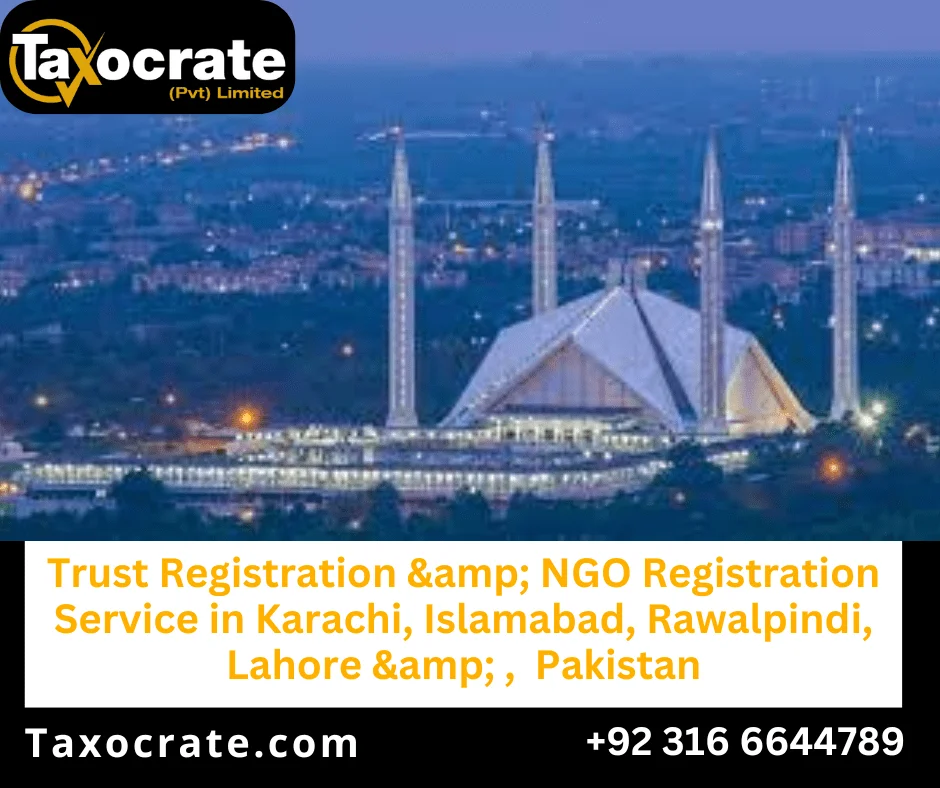
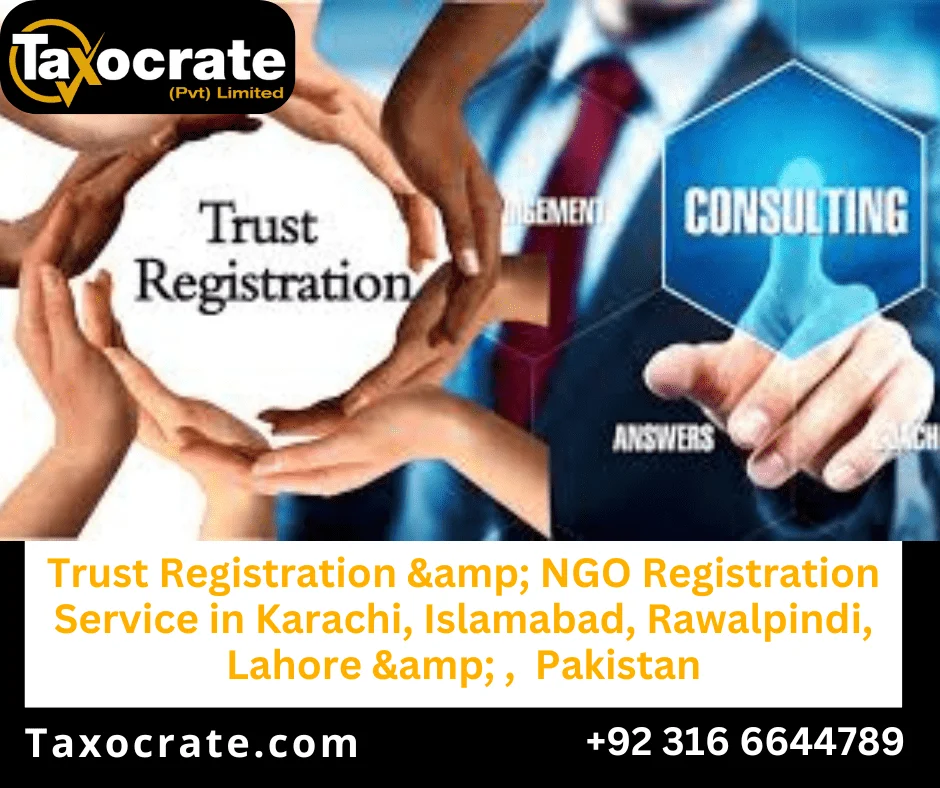
Elements of the Charitable/Welfare Trust
There are the following elements of a charitable/welfare trust:
- Author of the trust:
The “author of the trust” is the one who reposes or declares the trust:
- Trustee:
An individual who accepts the confidence is called a “trustee”:
- Beneficiary
The person who benefits from the confidence is called the “beneficiary”:
- Trust Property or Trust Money
“Trust-property” or “trust-money” is the subject matter of the trust
- Beneficial Interest
The beneficiary’s “beneficial interest” is his legal claim against the trustee as owner of the trust-property
- Instrument of the Trust
An instrument declaring a trust is referred to as an “instrument of trust”:
Creation of The Charitable/WelfareTrusts
Lawful purpose
Any lawful purpose may be used to create trust. The purpose of the trust has to be lawful unless it is
- Forbidden by law,
- Of such a nature that, if permitted, it would defeat the provisions of any law,
- Fraudulent,
- Involves or implies injury to the person or property of another,
- The Court regards it as immoral or opposed to public policy.
Trust with unlawful purposes is void.
It is considered void when a trust is created for two purposes, one of which is lawful, the other unlawful, and the two cannot be separated.
Trust of immovable property
A trust relating to movable property cannot be valid unless it is declared by a non-testamentary instrument in writing signed by the author or trustee and registered, or by a will.
Trust of movable property
A trust over movable property is only valid if declared as aforesaid, or if the property is transferred to the trustee.
Trust Deed
The author of a trust creates a trust if, by any words or acts, he or she indicates with reasonable certainty:
(a) an intention on his part to create thereby a trust,
(b) the purpose of the trust,
(c) the beneficiary, and
(d) the trust-property, and (unless the trust is declared by will or the author of the trust is himself to be the trustee) transfers the trust-property to the trustee.
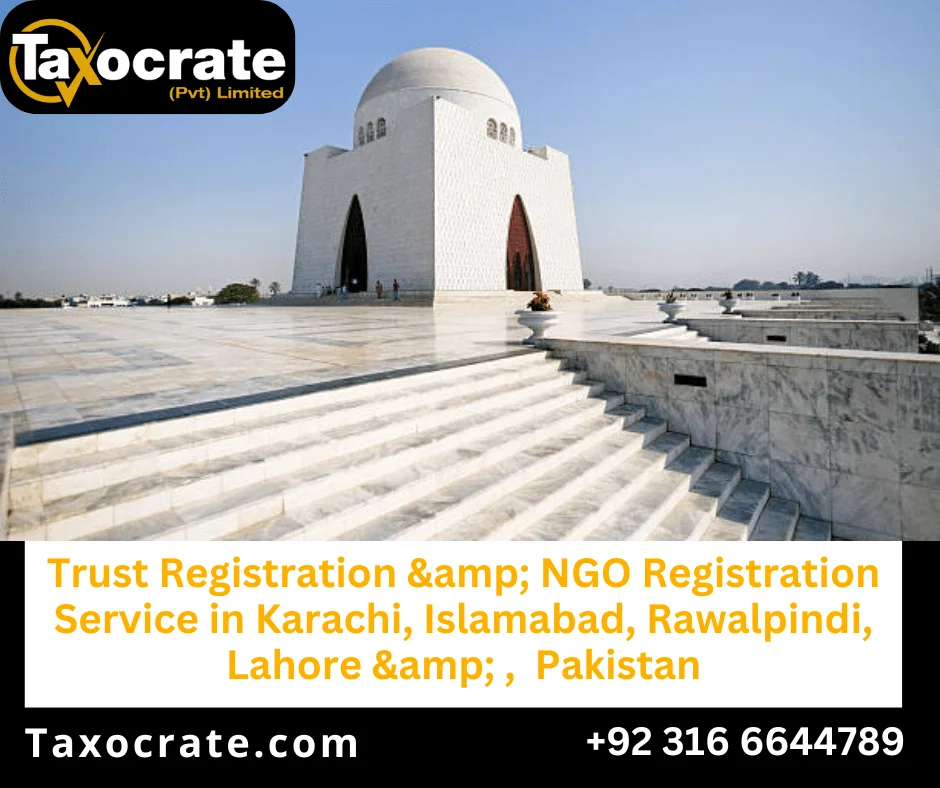
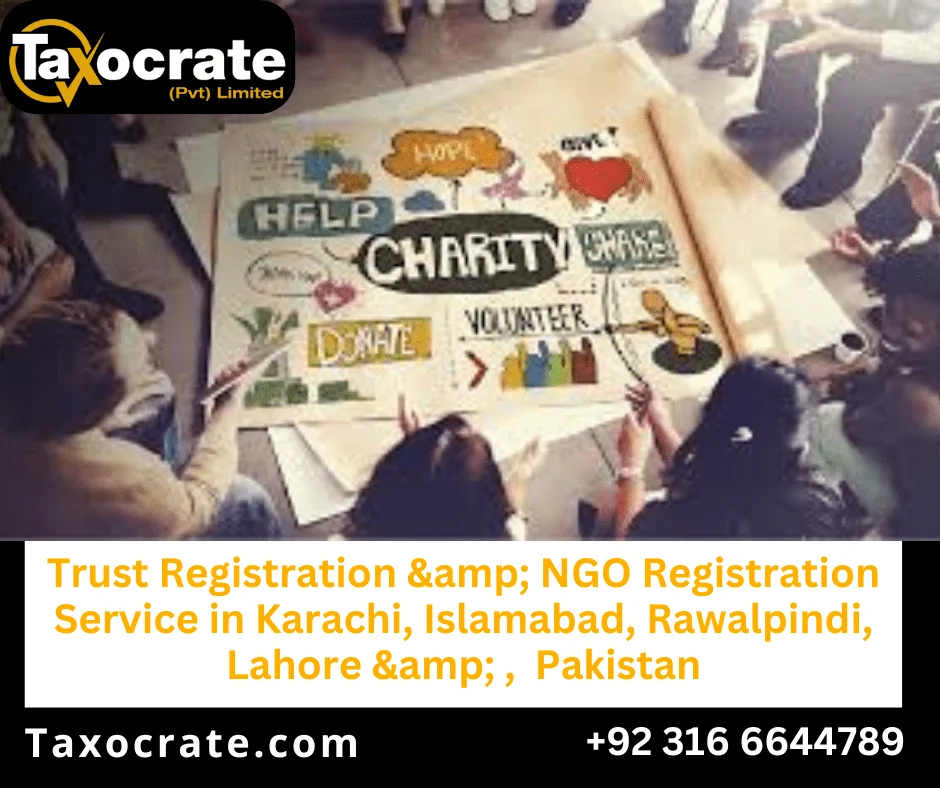
Who Can Create a Trust?
A trust may be created
(a) By every person competent to contract, and
(b) With the permission of a principal Civil Court of original jurisdiction, by or on behalf of a minor;
Subject matter of trust
The Subject-matter of a trust must be property transferable to the beneficiary.
Who May Be the Beneficiary of a Trust?
Beneficiaries may be anyone who is capable of holding property.
Who May Be a Trustee?
Trustees maybe anyone who is able to hold property. However, if the trust involves discretion, the trustee must be competent to contract to execute it. Trusts are not obligated to be accepted.
Trustee to Execute the Trust
The trustee is bound by the purposes of the trust and by the directions given by the author at the time of its creation, except as modified by the consent of all the beneficiaries. For the purposes of this section, where the beneficiary is incompetent to contract, his consent may be granted by a principal Civil Court of original jurisdiction. Note that nothing in this section requires a trustee to obey any direction when to do so would be impracticable, illegal, or manifestly harmful to beneficiaries.
Declaration of Trust
The author can also create a trust in which they will hold the property as trustees, but not as owners, thus eliminating the need for a property transfer. In such a situation, the declaration of trust must be by the owner, and he alone should be the trustee. Such a declaration would, however, need to be registered under the Registration Act.
Types of Trusts
Trusts can be of two types:
- Private Trust
- Public Trust
A private trust benefits an individual or group of individuals, their descendants, or any legal person who is capable of holding property. Public trust is one whose purpose is to benefit the public or any section of the public.
Process of Creation of Trust in Pakistan
There are two ways to create a trust for immovable property. The first case involved a testamentary instrument; the second was non-testamentary. A trust relating to an immovable property cannot be created orally; it must be created through a duly registered document. A trust of movable property can be created either with a document or by delivering the property to the trustee with any necessary oral instructions. By giving directions in writing, it would constitute a trust by a non-testamentary document that may or may not be registered.
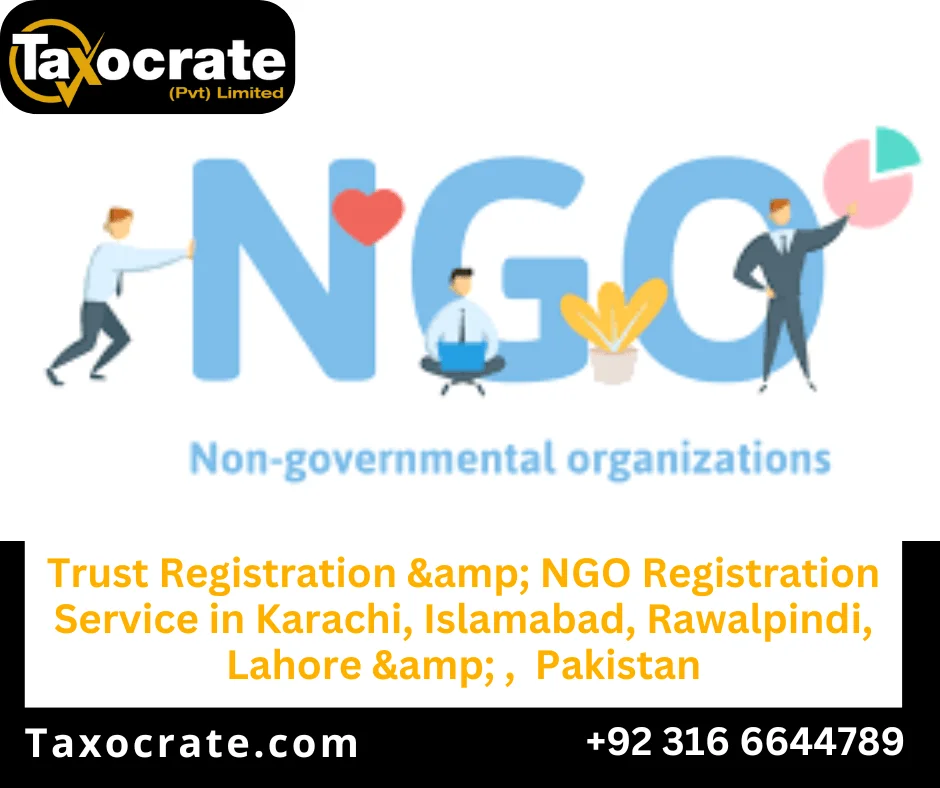
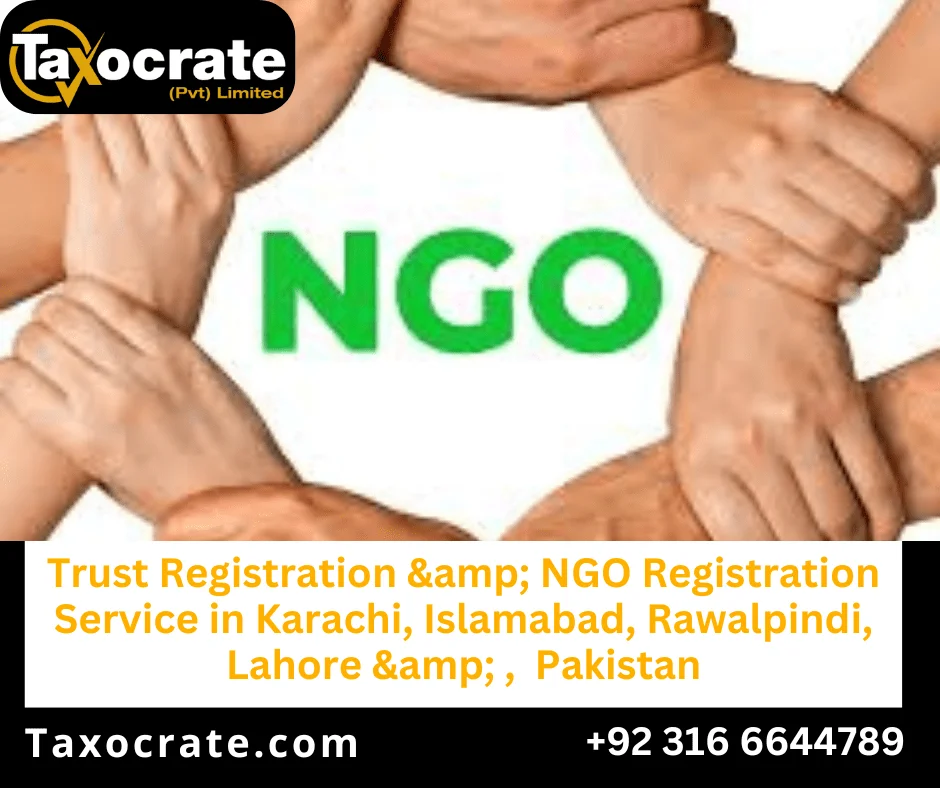
Dissolution Under the Trusts Act:
Trusts are extinguished if:
- The purpose for which it was created has been achieved;
- This becomes unlawful;
- When the goal cannot be achieved; or
- The trust is revoked
DOCUMENTS REQUIRED FOR TRUST REGISTRATION
Following are the required documents for the registration of a trust.
- MEMORANDUM OF ASSOCIATION: Contains Name of the Trust, Address of the Trust’s main office, Objectives of the Trust, and Authors of the Trust Schedule
- TRUST DEED (on 2000/ Rupees Stamp Paper
- AFFIDAVIT
- Attested copies of CNICs or Passport
- PROOF OF THE REGISTERED OFFICE ADDRESS
- N.O.C / RENTAL AGREEMENT
- AFFIDAVIT ON SCHEDULE-III (NO LEGAL PROCEEDING/ NO CRIMINAL RECORD)
- Bank Challan of Rs.10,500/- (rupees Ten Thousand Five Hundred only).
- Any other documents as Assistant Director or Director may require.
- Picture of Trustee or Author along with Sign and Thumb Impression must be fixed in the current deed and green paper shall be used for the registration of the deed.
- Authority Letter of a Person ( who is responsible for the registration matter of Trust)
- Pro forma for Trust
NGO Registration in Pakistan
The Vibrant NGO Sector in Pakistan
The non-profit sector in Pakistan is diverse and vibrant, experiencing significant growth as the government recognizes the value of non-governmental organizations (NGOs) in development and improving citizens’ lives. This sector includes traditional welfare organizations, modern development-oriented NGOs, and informal networks of community-based organizations. In recent years, the term “NGO” has become widely used in Pakistan, referring to any organization working for society’s welfare, although there is no legal definition of the term in Pakistani law. These organizations often take the form of societies or voluntary welfare agencies, with many remaining informal and unregistered.
The NGO Sector in Pakistan
Scope and Activities
A 2002 study by Johns Hopkins University estimated 45,000 active non-profit organizations in Pakistan, with 46% involved in religious education. The sector’s combined income was estimated at 16,400 million rupees. Voluntary and welfare organizations vary in size, from small neighborhood and village committees to large organizations providing education, health, and social services at the national level. Since the 1980s and 1990s, rights-based organizations have become more prominent, complementing traditional social services.
Independent Analysis of the NGO Sector in Pakistan
The Pakistan Centre for Philanthropy has published numerous papers on the non-profit sector in Pakistan, providing valuable insights into its dynamics and challenges.
International Programs and NGO Development in Pakistan
Strategic Initiatives
The International Program has been active in Pakistan since 2003, formalizing an action plan with the government in 2006. Key achievements include developing a national database of NGOs, creating a code of conduct for NGO regulators, and delivering comprehensive training for over 1500 NGO regulation staff across Pakistan. Plans include more detailed training in regulatory issues and producing guidance leaflets to assist NGOs.
Navigating NGO Registration and Compliance in Pakistan for Effective Contribution
By understanding the legal and regulatory framework, benefits, and reporting requirements for NGOs in Pakistan, organizations can navigate the complexities of NGO registration and contribute effectively to the country’s development.
Legal Framework for NGO Registration in Pakistan
Ensuring Free Association
The right of free association is guaranteed by the Pakistan Constitution, albeit with certain limitations. The legal framework governing NGO registration in Pakistan is complex, with several laws under which an NGO may be registered. The most significant of these laws include:
- Voluntary Social Welfare Agencies Registration and Control Ordinance 1961: This ordinance defines permissible purposes within the social welfare field and mandates registration for organizations seeking government funding.
- Societies Registration Act, 1860: Applicable to charitable societies with a wide range of public benefit purposes.
- Cooperative Society Act, 1925
- Companies Ordinance, 1984 (Section 42): Applies to not-for-profit companies formed to promote ‘useful objects.’
- Trust Act, 1882: Applies to private trusts with a wide range of purposes.
- Income Tax Ordinance, 2001: Sets out the tax exemptions which NGOs are eligible for.
Registration trends and requirements for trust/NGOs in Pakistan
While registration is generally not compulsory, foreign NGOs and those receiving government funding must register with the Economic Affairs Division and Central Board of Revenue, respectively. Consequently, many NGOs in Pakistan choose whether or not to register and select the appropriate regime. A majority (65.4%) of NGOs are registered under the Societies Registration Act, while around 20% remain unregistered.
Regulatory Framework for NGOs in Pakistan
Federal and Provincial Roles
Pakistan’s federal system of government involves states in policy-making processes, with certain powers regarding NGOs devolved to the state level. The Ministry of Social Welfare and Special Education, along with the Provincial Social Welfare Departments, is responsible for registering and monitoring organizations under the Voluntary Social Welfare Agencies (Registration and Control) Ordinance 1961. The District Offices of the Industry Department handle registration under the Societies Registration Act 1860.
Registration Process and Licensing Requirements for Not-for-Profit Companies in Pakistan
Not-for-profit companies must obtain a license from the Securities and Exchange Commission (SEC), meeting specific conditions such as prohibitions on payments to members and trading. Following this, they apply for a Certificate of Incorporation from one of eight Company Registration Offices. International NGOs must register and agree on a Memorandum of Understanding (MoU) with the Economic Affairs Division, although there is no legal basis for this requirement.
Benefits of NGO Registration in Pakistan
Tax Exemptions
NGOs, including international ones, may be eligible for tax exemptions. Charities are potentially exempt from tax on most forms of income if funds are applied solely in furtherance of their objectives. However, such exemptions are not automatically granted and must be applied for directly to the Ministry of Finance. No exemption is granted for income from property, capital gains, and business activities. To be eligible for these benefits, a charity must register with the Central Board of Revenue, with approval granted for three years.
Reporting Requirements for NGOs in Pakistan
Annual Reporting
Organizations registered under the Voluntary Social Welfare Agencies (Registration and Control) Ordinance 1961 must maintain accounts and submit annual reports and audit reports to District Officers, detailing management, activities, and plans. These accounts and reports are publicly available. Registered societies must submit annual membership lists, while not-for-profit companies must submit annual returns, audited accounts, and other documents for examination.
Regulatory Framework for International NGOs and Tax-Exempt Organizations in Pakista
International NGOs must explain their plans to the Economic Affairs Division (EAD), which coordinates with relevant ministries to ensure alignment with national development frameworks. NGOs benefiting from tax exemptions must submit annual audited accounts, a list of donors and beneficiaries, and other financial information to the Central Board of Revenue.
Governmental NGO Policy in Pakistan
Training and Development
The Ministry of Social Welfare and Special Education in Sindh operates a training institute dedicated to NGOs registered under the Voluntary Social Welfare Agencies Registration Ordinance 1961. This institute conducts training sessions in Karachi and mobile training sessions across Sindh.
Do You Want to Register a Trust/NGO/NPO in Pakistan? TAXOCRATE Can Assist You!
Expert Legal Services for Trust and NGO Registration Across Pakistan
At Taxocrate, we bring over 40 years of extensive legal experience in the registration and compliance of trusts, NGOs, and NPOs across Pakistan. Our dedicated team has been at the forefront of supporting the non-governmental and not-for-profit sector, helping organizations navigate the complex legal and regulatory landscape with ease. Whether you are based in Karachi, Islamabad, Lahore, Rawalpindi, or other cities, we provide expert guidance to ensure your trust or NGO is registered efficiently and in full compliance with the law.
Dedicated Legal Expertise and Grassroots Impact for NGOs and Trusts in Pakistan
Our commitment goes beyond paperwork; we actively engage in practical, on-the-ground work, contributing to the welfare of marginalized communities in remote areas such as the deserts of Thar in Sindh and the Khaima Basti (tent villages) along the border areas of Balochistan, including Chaman and Zhob. By partnering with us, you gain access to a wealth of knowledge and a team that not only understands the legal requirements but also shares a deep-rooted passion for making a tangible impact on society.
Comprehensive Legal Support for Empowering NGOs and Trusts in Pakistan
From registration to ongoing compliance, Taxocrate stands by your side, offering personalized legal solutions that align with your mission of serving the less privileged. Let us help you turn your vision of creating meaningful change into reality while ensuring your organization remains legally sound and empowered to fulfill its social objectives.
It Can Be Difficult to Register a Trust or NGO in Pakistan, But...
A Call to Action
The process of registering a Trust or NGO may seem daunting, but it is a necessary step for those who wish to bring about meaningful change. By taking this step, you can contribute to a system that provides hope and support to countless individuals in need. Pakistan’s socio-economic challenges can only be addressed effectively when structured organizations take the lead in creating innovative and sustainable solutions. If you are considering starting an NGO or Trust, now is the time to act. Together, we can create a brighter future for everyone.
Be the Change
Trust and NGO registration is not just a bureaucratic necessity; it is a commitment to transparency, accountability, and a shared vision for a better society. By supporting this process, you are taking a stand against poverty, illiteracy, and injustice, and you are empowering communities to thrive. Let’s join hands to support registered NGOs and Trusts and help them create a lasting impact for generations to come.
Contact Us Now
You can contact us on any of the following platforms to get an instant support.
Contact Us
Popular Service
Provincial Tax Authorities
Misc. Services
Recent Article
-
The Ethics of Taxation: Building a Stronger Pakistan Through Legal Compliance
-
FBR Notices and You: How to Respond to an Assessment Amendment Legally
-
The Future of E-Bility: What Every Logistics Business in Karachi Needs to Know
-
Filer and Non-Filer | Who is a Filer in Pakistan?
-
Income Tax Return Filing Experts in Pakistan
-
Super Tax in Pakistan 2025: How It Affects Your Annual Income and Business Profits
-
Trademark Registration with IPO Pakistan: Intellectual Property Lawyers Can Help
-
NTN Stands For National Tax Number in Pakistan: NTN Registration and Verification
-
NTN Registration Same-day Service for Just Rs. 2,000 Across Pakistan
-
Trademark Registration in Pakistan & FAQ About Trademark
Disclaimer: All information is provided on this portal solely for informational purposes. This portal is not affiliated with the Government website. Please note that this disclaimer also applies to our website, and we may refer to it as ‘us’, ‘we’, ‘our’ or ‘website’. The information on the website has been gathered from various government and non-government sources. We disclaim any liability for errors, injuries, losses, or damages arising from the use of this information. We also disclaim any liability for the availability and authenticity of this information. Our services consist of filling out forms, providing legal advice, and assisting our clients. The departmental processing of the registration forms is not our responsibility. You will have to use a service fee for professionally preparing your application, submitting it to the relevant authorities, and coordinating your application process. You will have to pay any Government fees.
Add Your Heading Text Here
Characteristics, Merits, and Necessities of Trust/NGO Registration in Pakistan
NGO registration ensures legal recognition for an organization, allowing it to operate within the framework of Pakistani law.
Registered NGOs can access tax exemptions and other financial benefits, enabling them to allocate more resources to their charitable activities.
NGO registration enhances credibility and trust among donors, partners, and the public.
A registered NGO can enter into legal contracts and own property in its name.
Trust registration safeguards the assets and funds of a charitable trust by making them legally protected.
Registered NGOs are eligible to apply for grants and funding from international and local organizations.
NGO registration promotes transparency and accountability in operations.
A registered NGO can benefit from reduced customs duties on imported goods required for its projects.
Trust registration ensures compliance with government regulations, reducing the risk of legal complications.
NGO registration allows organizations to open dedicated bank accounts for financial transactions.
Registered NGOs can establish partnerships with government bodies for developmental projects.
NGO registration gives organizations the authority to conduct fundraising activities legally.
Trust registration enables individuals to create a permanent structure for their charitable initiatives.
NGO registration is a prerequisite for gaining recognition from international bodies.
Registered NGOs are often preferred for corporate social responsibility (CSR) partnerships.
Trust registration ensures the lawful management of charitable funds and properties.
NGO registration enhances the organization’s visibility and reputation in the community.
Registered NGOs are eligible to apply for government incentives and benefits.
Trust registration provides a clear legal framework for the appointment and responsibilities of trustees.
NGO registration helps in building donor confidence by ensuring compliance with legal standards.
A registered NGO can file lawsuits to protect its interests or resolve disputes.
Trust registration formalizes the intentions of the founder and secures the trust’s objectives.
Registered NGOs are required to maintain proper financial records, which increases accountability.
NGO registration allows organizations to establish their presence across multiple provinces.
Trust registration helps in avoiding disputes among trustees by providing legal clarity.
Registered NGOs can obtain tax exemption certificates, reducing their operational costs.
NGO registration ensures the organization’s activities align with its stated objectives.
Trust registration protects the founder’s vision and ensures its continuity over generations.
Registered NGOs can attract skilled professionals and volunteers who value working with legitimate entities.
NGO registration simplifies the process of obtaining permits for events and campaigns.
Trust registration ensures the lawful allocation of funds according to the trust deed.
NGO registration strengthens the organization’s standing in the eyes of international agencies.
Registered NGOs are eligible to participate in public tenders and projects.
Trust registration provides a clear structure for resolving internal conflicts.
NGO registration demonstrates the organization’s commitment to transparency and ethical practices.
Registered NGOs can publish reports and research under their name, enhancing their influence.
Trust registration enables the founder to appoint trustees with specific roles and responsibilities.
NGO registration facilitates the receipt of foreign donations under proper legal channels.
Registered NGOs can advocate for policy changes with greater legitimacy.
Trust registration ensures the perpetuity of the founder’s charitable objectives.
NGO registration allows organizations to engage in cross-border collaborations.
Registered NGOs are more likely to receive media coverage for their initiatives.
Trust registration provides legal protection against unauthorized use of the trust’s name.
NGO registration enables organizations to publish their annual reports, building public trust.
Registered NGOs can host international delegations and workshops.
Trust registration formalizes the governance structure, ensuring proper management.
NGO registration is essential for obtaining government-issued no-objection certificates (NOCs).
Registered NGOs are more resilient to challenges and external scrutiny.
Trust registration provides a secure legal structure for managing charitable donations.
NGO registration simplifies the process of hiring staff and managing payrolls.
Registered NGOs are eligible for technical and financial support from development agencies.
Trust registration ensures the ethical management of donations and assets.
NGO registration increases the chances of receiving awards and recognition for achievements.
Registered NGOs can benefit from collaborative opportunities with other NGOs.
Trust registration provides a legal framework for the dissolution and distribution of assets.
NGO registration enables organizations to participate in international conferences.
Registered NGOs can apply for government licenses for specialized activities.
Trust registration ensures the organization’s compliance with labor and employment laws.
NGO registration fosters a culture of accountability within the organization.
Registered NGOs can launch awareness campaigns with the support of government authorities.
Trust registration protects the founder’s legacy and charitable intentions.
NGO registration helps organizations align their goals with national development priorities.
Registered NGOs can negotiate with financial institutions for favorable terms.
Trust registration prevents misuse of funds and ensures transparency.
NGO registration creates opportunities for collaboration with academic institutions.
Registered NGOs can gain membership in national and international networks.
Trust registration ensures the proper succession of leadership within the trust.
NGO registration builds public confidence in the organization’s operations.
Registered NGOs can run training programs for community development.
Trust registration provides a legal basis for resolving disputes over assets.
NGO registration enables organizations to participate in emergency relief efforts.
Registered NGOs can access resources and tools for capacity building.
Trust registration ensures that funds are utilized only for intended purposes.
NGO registration supports the organization’s long-term sustainability.
Registered NGOs can engage in advocacy campaigns with greater impact.
Trust registration ensures compliance with anti-money laundering regulations.
NGO registration enhances the organization’s ability to attract international volunteers.
Registered NGOs are more likely to receive endorsements from prominent figures.
Trust registration ensures proper documentation of the organization’s objectives.
NGO registration allows organizations to launch large-scale development projects.
Registered NGOs can host events with government and private sector support.
Trust registration provides a mechanism for auditing and accountability.
NGO registration facilitates the mobilization of community resources.
Registered NGOs can participate in policy-making processes at various levels.
Trust registration protects the organization from fraudulent activities.
NGO registration enables organizations to build partnerships with corporate entities.
Registered NGOs can leverage digital platforms for fundraising and outreach.
Trust registration ensures compliance with local and international laws.
NGO registration helps organizations gain credibility in conflict-affected regions.
Registered NGOs can access training programs for leadership development.
Trust registration formalizes the roles and responsibilities of trustees.
NGO registration strengthens the organization’s capacity to address social issues.
Registered NGOs can engage with local communities more effectively.
Trust registration ensures the equitable distribution of charitable resources.
NGO registration enables organizations to influence public opinion positively.
Registered NGOs can work alongside government initiatives for greater impact.
Trust registration creates a legal basis for protecting intellectual property.
NGO registration allows organizations to operate without fear of legal challenges.
Registered NGOs can build alliances with other non-profit organizations.
Trust registration fosters a culture of accountability and ethical governance.
Supporting Trust and NGO Registration in Pakistan: A Pathway to a Better Future
The Importance of Trust and NGO Registration
Trust and NGO registration in Pakistan is more than just a legal formality; it is a fundamental step toward creating a structured and sustainable approach to addressing the nation’s most pressing issues. Registered NGOs and Trusts play an integral role in alleviating poverty, improving healthcare, advancing education, and ensuring basic human rights. By becoming registered entities, these organizations gain credibility, which attracts more donors and partners, enabling them to maximize their social impact.
Building Credibility and Trust
One of the primary benefits of registering an NGO or Trust is the ability to build credibility. A registered NGO stands as a legitimate organization recognized by the government, ensuring potential donors and supporters that their contributions are being utilized responsibly. It also opens the door to collaborating with international organizations, which often require partnerships with registered entities for funding and project implementation. Registration acts as a seal of trust, encouraging more people to contribute to noble causes.
Unlocking Opportunities Through Registration
NGO and Trust registration unlocks several opportunities for the organization. Registered NGOs become eligible for various government grants, tax exemptions, and incentives, which help in expanding their outreach and effectiveness. Moreover, foreign funding, which is vital for large-scale humanitarian projects, often mandates registration. By completing the registration process, NGOs can broaden their horizons and implement impactful programs that benefit communities across Pakistan.
